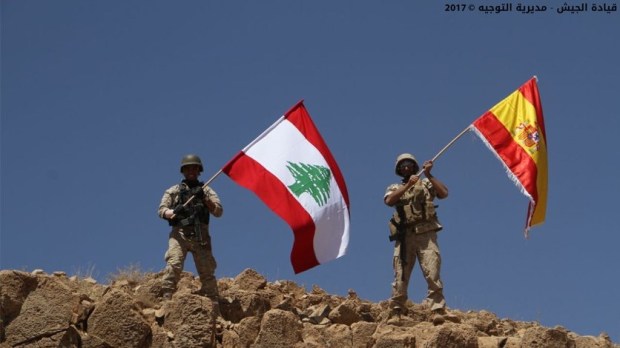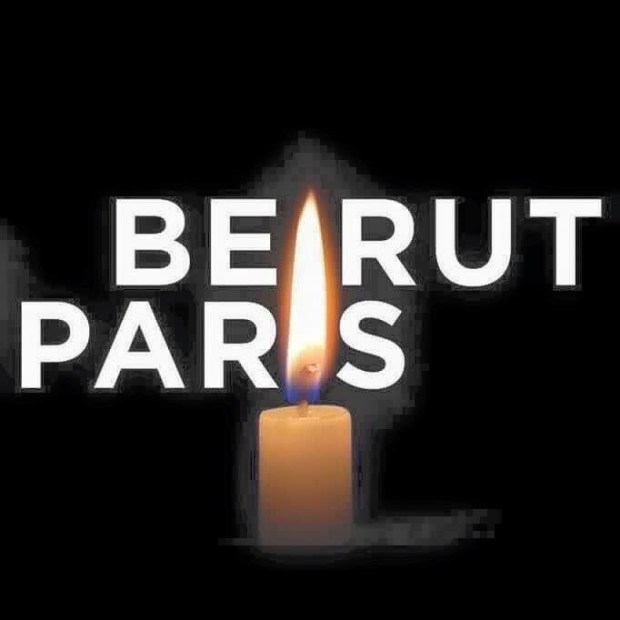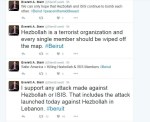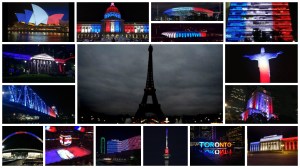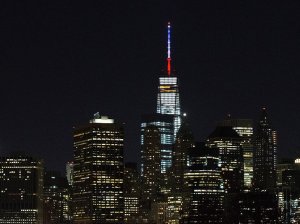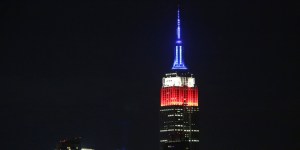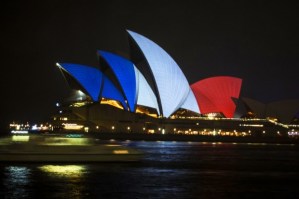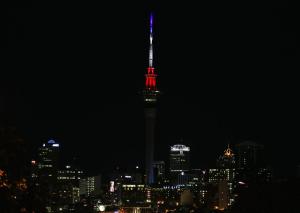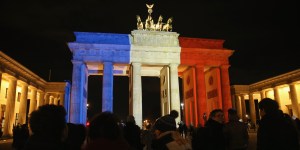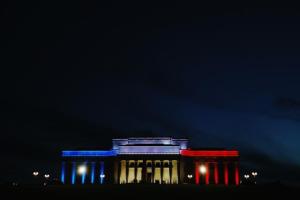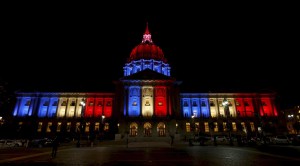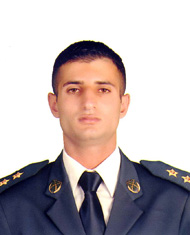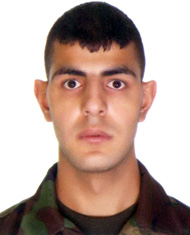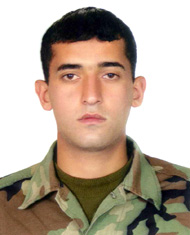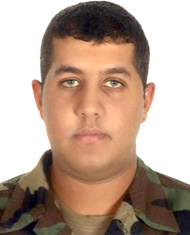August 2nd, 2014. It has been such a long time. That was at a time when the Lebanese army was fighting ISIS at our north-eastern border with Syria. Nowadays, we call it “The Battle of Arsal.” And on that day, ISIS took hostage several of our army members.
Subsequently, our government became a little irritated. Here was another “mess” they had to deal with. It was nothing major. They weren’t obviously going to try their best as long as the status quo remained the same; that status quo being the soldiers remain alive and the fragile “truce” with ISIS remains in place.
On August 28th, Ali Al-Sayyed was beheaded, becoming the first public Lebanese victim of ISIS. His video did not cause the outrage – even in Lebanon – that the death of James Foley caused. Nowadays, if you drop the name Ali Al-Sayyed in a casual conversation, few would remember him. But he existed, and he left behind a pregnant wife, who gave birth to his son a few days ago, and a daughter called Rahaf.
This is Ali:

Ali was one of the brave men who fought against the Islamists in Nahr el Bared in 2007. When he was killed, our government responded with statements and empty promises. They were considering their options. This beheading was a clear attempt to “cause civil strife.”
Meanwhile, the parents of those soldiers were closing off highways to the dismay of many. Traffic! Ugh. Then when they moved their protests from the Tripoli highway in North Lebanon to Beirut for more relevance, they found themselves being hosed down to clear roads as they chanted for our government to do something – anything – for their sons.
Their protests increased. It was no longer just a matter of a fragile status quo that allowed our government to continue its summer vacation. However, as things usually go in Lebanon, a couple of days after the murder of Ali Al-Sayyed, the news cycle diverted to other issues.
On September 5th, as the hostage’s families caused more “unrest” in the country, as they became angrier and promised escalations, our minister of social affairs Rachid Derbas made the following statement:
“Protesters in Qalamounaccused the government of being too strict and demanded negotiations while others asked for a military solution and accused the Cabinet of cowardice. This was a scary scene…. What’s with the families of the captured soldiers threatening [to incite] a civil war while their sons are still safe?”
Naturally, even the people in our government had forgotten that it had only been 7 days at the time that a public beheading of one of those sons had taken place. What made it even more ironic is the fact that the following day, on September 6th, ISIS released the beheading video of another Lebanese soldier: Abbas Medlej. He was 20.
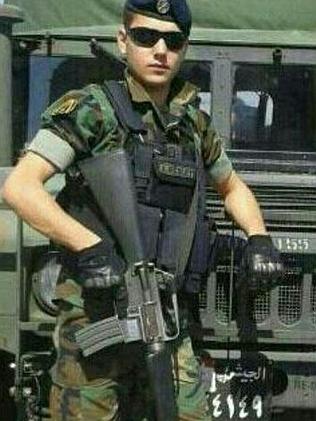
How did our government respond?
Well, for starters, our PM Tammam Salam gave a speech, straight out a Paulo Coelho book:
“We are not in a weak position. We have several options. There are various elements of strength in our hands…. Lebanon will not be defeated. Those terrorists will definitely be defeated.”
And then, because as we all know Lebanon is a country of utmost respect for civilities and the law, our minister of Interior Affairs Nouad el Machnouk promised to “speed up” the trials of Islamists in Roumieh. He also went to Qatar to see what can be done.
Then, almost 2 weeks later, on September 19th, ISIS executed another soldier named Mohammad Hamieh.
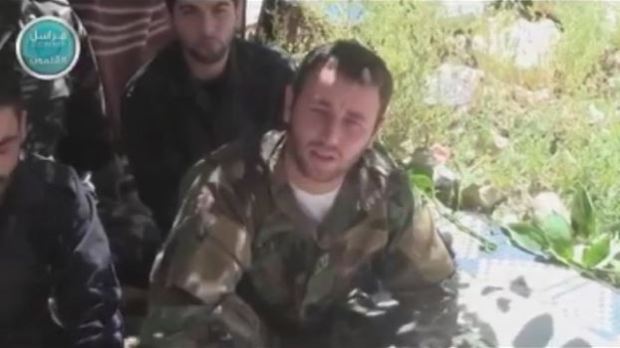
Then we forgot about all of this for more than 2 months.
On December 5th, 2014, ISIS released a video in which they showed the execution of a fourth Lebanese soldier named Ali Al-Bazzal. They shot him in the head. A few days later, Ali’s grief-stricken father also passed away.
This is Ali:

And then nothing.
Now let’s contrast this with what happened in Jordan yesterday.
Moaz al-Kasasbeh was a pilot who was captured by the terrorists on December 24th after his F-16 jet crashed near the ISIS stronghold city Raqqa in Northern Syria. Yesterday, a video surfaced showing ISIS’ new style of assassinations: they burned Moaz alive.
It was reported that he had been killed as early as January 3rd, but the terrorist organization still negotiated with the Jordanian government to secure the release of a woman named Sajida al-Rishawi, who had taken part in a 2005 suicide bomb attack in Amman.
Following the news of his death, Jordan’s king Abdullah cut his visit to the United States short and vowed “punishment and revenge” for Moaz’s death. A few hours later, the country had executed Sajida Al-Rishawi as well as another Islamist called Ziad al-Karbouli, before announcing that they would increase their role in the coalition against ISIS.
And it doesn’t stop there.
Jordan managed to highlight the gravity of the murder of their son Moaz Al-Kasasbeh so well that every single international outlet has been addressing the murder at length. The whole rhetoric of “oh, his death isn’t as important because he’s not Western” was rendered invalid.

Jordan’s TV stations put black ribbons on their screens along with Moaz’s picture. The death of just one of their soldiers sent their country into a frenzy to make sure they hold their own, that it doesn’t happen again and that they would be sure to respond aggressively to put ISIS in place.
By being the only Arab country to respond to ISIS, Jordan has proven that they won’t be yet another pussy-nation in the region to be trampled on by those terrorists.
I can’t say the same for the place we call our country.
6 months and 4 soldiers killed later, how did we make international news? Because of a selfie and a pornstar.
6 months and 4 soldiers killed later, instead of giving the parents of those soldiers a second thought, instead of telling them that we would “increase our role against ISIS,” we hosed them down with water, told them they are wrong to demand justice for their children.
6 months and 4 soldiers killed later, the country never mourned the soldiers who died, whose death was turned into entertainment for the sadists; our media never really bothered and we never cared.
Ali Al-Sayyed, Abbas Medlej, Ali Al-Bazzal and Mohammad Hamieh are four men who were not just killed because of their government’s failure, but who had to die over and over again by that same government failing to stand up against those that murdered them, by failing to make sure that their death translates to anything relevant, by making sure their beheading ends up as a non-event, another filler report in our evening news.
This is a disgrace.
May Ali, Abbas, Ali, Mohammad and Moaz rest in peace.
